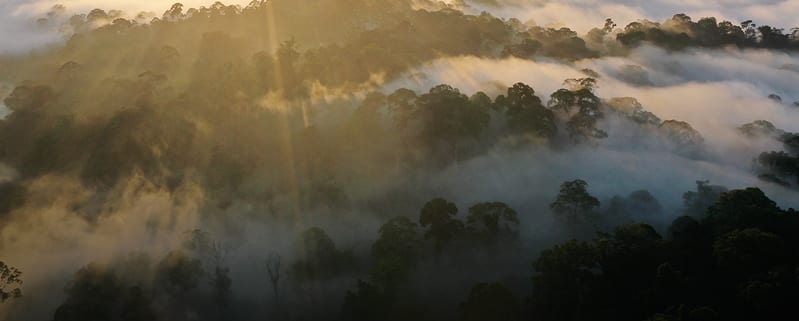Rainforest Trust Statement on IPCC Climate Change and Land Report
Today, the United Nations Intergovernmental Panel on Climate Change declared that protecting the world’s forests to absorb carbon from the atmosphere and prevent greenhouse gas emissions plays a critical role in climate action.
While reducing fossil fuel use is vital to mitigating the climate crisis, emissions reduction alone will not halt global warming. The report primarily focuses on land conservation and discussed the drastic effects of deforestation and agriculture on the planet. “Land plays an important role in the climate system. Agriculture, forestry and other types of land use account for 23% of human greenhouse gas emissions,” said Jim Skea, co-chair of the Intergovernmental Panel on Climate Change. “At the same time natural land processes absorb carbon dioxide equivalent to almost a third of carbon dioxide emissions from fossil fuels and industry.”
Land conservation is crucial to the planet’s sustainability and protecting it will play a key role in mitigating climate change. But to conserve land successfully, we need to overhaul agriculture. There is a direct correlation between the climate crisis and global ecological stability. Deforestation both releases carbon dioxide directly into the atmosphere and destroys forests that absorb carbon from the atmosphere, making it a double threat to the climate crisis. “Deforestation is a significant part of the problem, but better management of the forests is an even bigger part of the solution,” said Francis Seymour, a senior fellow for World Resources Institute. “It’s not just the carbon spewed into the air when a forest is converted into something else, it’s that lost opportunity to keep that natural carbon-capture-and-storage factory up and running.”
Rainforest Trust’s mission is identifying and protecting the world’s most vulnerable species and ecosystems. We collaborate with local partners to help communities self-develop the tools necessary to use their land sustainably. This UN IPCC report confirms that our 30-year-strong conservation model — saving rainforests with the people closest to them — is inherent to climate action.





